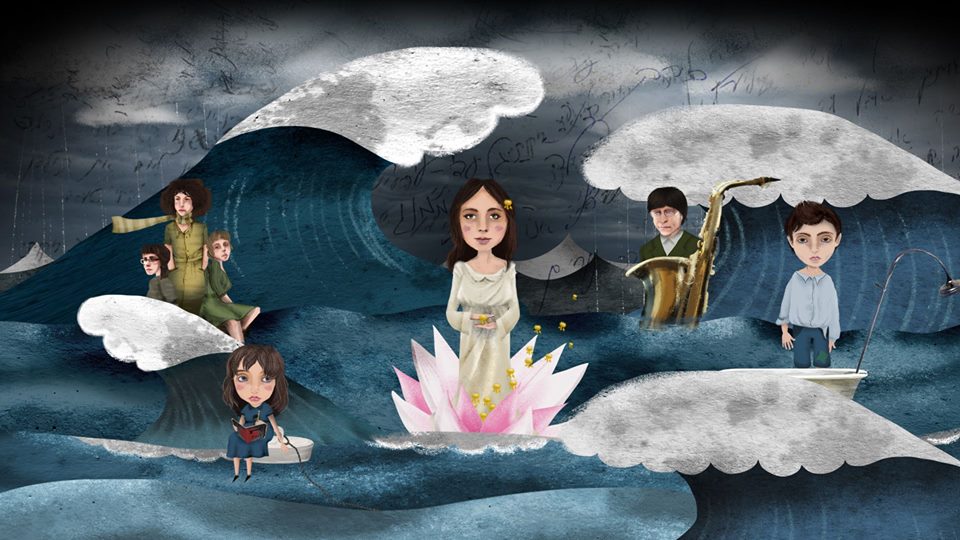The Innis Herald Goes to the Movies: The Toronto Jewish Film Festival
This article is a part of a larger series, ‘The Innis Herald Goes to the Movies’, in which we review films, discuss film festivals, and cover other local movie-related news. As Innis College has such a thriving film community, we at the Herald will strive to capture this energy through this series. Look forward to more in the near future!
With screening locations spread across the city, located as far away as Empress Walk theaters and as nearby as our own Innis Town Hall, the Toronto Jewish Film Festival could have easily felt disjointed in its execution— but not so in practice. Now in its 25th year, dubbed the Silver Anniversary, the festival boasted over 100 films with a record number of attendees.
The festival itself had an air of community surrounding it, and over the course of the two weeks I saw the same people peppering the audience, clearly knowing several others around them and, if not, then finding mutual friends to discuss with. As someone who is not Jewish, and subsequently not at all part of the community, there’s a beauty to the way that the festival cultivated this chance for Jewish people to come together. Similar to any other diasporic-centered festival, film or otherwise, this bonding quality also acted as a means of combating the fact that TJFF overlapped with the tail end of Hot Docs’ prolific Canadian International Documentary Festival. The two festivals tended to be centered in the same neighbourhoods around the same theaters, but with a wider array of genre films than the Hot Docs Festival and a loyal fan base, the two diverged.

One of the highlights of the festival was their Richler On-Screen series. With a mix of shorts, documentaries, and other films culminating in The Apprenticeship of Duddy Kravitz, the series aimed to analyze Richler’s impact on Canadian and Jewish cultural history, as well as celebrate his life and those he affected. Notable was the Toronto premiere of a double feature of Dearth of a Salesman and Insomnia is Good for You, two newly discovered archival shorts starring Peter Sellers (Dr. Strangelove, The Pink Panther), which came out of Richler’s time spent in London, UK. Several of these screenings featured people close to Richler either introducing the films or, in the case of The Last of the Wild Jews, in a panel discussion afterwards answering questions. If anything, the panellists and films did nothing to hold back the controversies surrounding Richler’s life, with one panellist at the screening, Jack Rabinovitch, asking, “how [could you] be friends with this out and out anti-Semite?” in reference to a question asked about Richler’s complex relationship with his own religion and the Jewish community which he has come to represent.
Perhaps rightfully so, the politics of Richler’s life were repeatedly paralleled with the politics of today, and Donald Trump’s name was invoked with no small degree of disdain over the course of the panel and the festival itself. This should come as no surprise, with the number of anti-Semitic hate crimes spiking in America, especially in the months following Trump’s election. Coupled with the deeply troubling documentaries and historical dramas that revolve around the Holocaust or anti-Semitism, if it wasn’t for the lighthearted look at highly charged political issues in films such as the 90 Minute War, the festival could have been much more bleak. Instead, it seemed to cultivate a modern look at what it means to be Jewish in 2017: historically aware, politically engaged, and more than willing to laugh at themselves.

It is this that brings to light a question that hung over the festival. With such a diverse array of films, where were all the young people? There was a distinct concern at the lack of youth who were attending screenings, one which I noted myself. Perhaps only a symptom of being at an odd time for students to attend, nevertheless, despite the excellent array of films, the festival neglected to score many attendees who were below the age of 60. However, I did not feel that this was such a concern as to warrant much more than a note for next year. The Toronto Jewish Film Festival thrived in its 25th year, and with a promise to return next year, bigger and better than ever, there can be no doubt about its success.
Learn more about the Toronto Jewish Film Festival and the films mentioned in this article at their website: https://tjff.com/
